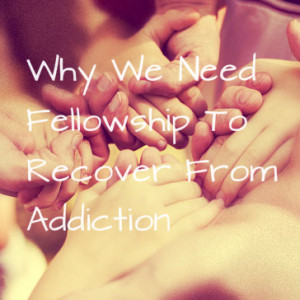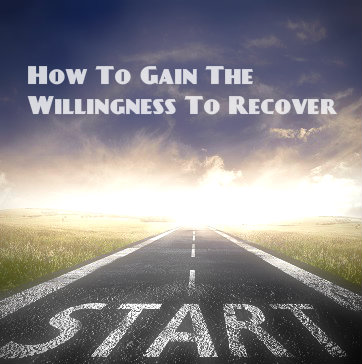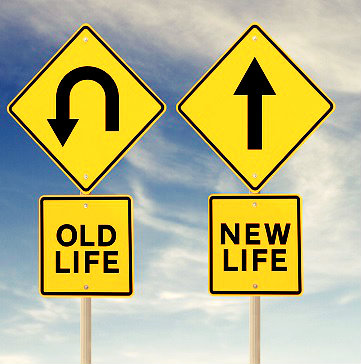Almost without exception, alcoholics are tortured by loneliness. Even before our drinking got bad and people cut us off, nearly all of us suffered the feeling that we didn’t quite belong. Either we were shy, and dared not draw near others. Or we were noisy good fellows constantly craving attention and companionship, but rarely getting it. There was always this mysterious barrier we could neither surmount nor understand.” (A.A. Twelve Steps and Twelve Traditions, 57)
The Isolation Of The Addict
 Isolation and addiction go hand in hand. Even if we were out every night and closing down the bars, surrounded by hordes of people, we felt somehow lonely. It wasn’t the presence of people we lacked, but relationship. In addiction we were confused about who we were and afraid to know our true selves. We used our addictions to hide from ourselves and to try to be the people we thought we wanted to be. Yet we suspected we didn’t belong and were quite certain that if people knew who we really were, they’d reject us. The loneliness was profound.
Isolation and addiction go hand in hand. Even if we were out every night and closing down the bars, surrounded by hordes of people, we felt somehow lonely. It wasn’t the presence of people we lacked, but relationship. In addiction we were confused about who we were and afraid to know our true selves. We used our addictions to hide from ourselves and to try to be the people we thought we wanted to be. Yet we suspected we didn’t belong and were quite certain that if people knew who we really were, they’d reject us. The loneliness was profound.
Fellowship: The Antidote To Isolation
The 12-Step Program is designed to begin bringing us out of isolation. That doesn’t mean simply throwing us in a room with a bunch of other drunks and junkies, it means helping us to know ourselves in ways we never had. As we work the Steps we learn to see ourselves honestly and we begin cultivating a real relationship with that self. We grow in humility and we lose our fear of rejection. Through the working of the Steps we are cleaning up the wreckage of the past and seeking to live well in the present by practicing the program principles in all of our affairs.
Meeting Fellowship Encourages Sobriety
Our isolation perpetuated our addiction. To recover, we do our part to begin breaking the secrecy that allowed our addiction to control our lives. The meeting is the place where we start this process. Knowing we are among those who have walked similar paths, we begin to feel comfortable opening up and being real. The meeting is a safe place where we won’t be judged or ostracized. There we find a system of support—people who are personally invested in our sobriety and wellbeing.
Cultivating Fellowship For Recovery
We can, of course, go through the motions without ever going deeper than surface level with our program fellows. But this only jeopardizes sobriety. We all need time to acclimate to the 12-Step life and we may not be ready to have complete strangers prying into our business, but we have to be moving in the direction of relationship. How?
By being intentional. The program recommends picking up the phone and talking with other members—ideally three a day. These don’t have to be profound conversations, but one day they will be. It’s an exercise in breaking down isolation and overcoming the fear of people. We don’t show up to the meeting late or duck out early. We force ourselves to interact. We take a sponsor and set up a schedule of regular interaction. We meet with other fellows in coffee shops to talk about the program. We serve. And we remember that coming out of isolation is one of the best secrets to lasting sobriety.
Life takes on new meaning in A.A. To watch people recover, to see them help others, to watch loneliness vanish, to see a fellowship grow up about you, to have a host of friends—this is an experience you must not miss.” (Alcoholics Anonymous, 89)
Read More About Starting Over And Embracing Life In Recovery
28 Jan 2014
Will I Always Be In Recovery?
Recovery is an important word for addicts. The word implies a process. When you are in recovery, you are working toward a goal. That goal is to never use again, to remain sober, to avoid relapsing. A process also implies that there is an end point, that at some time you will be fully recovered. Is that really possible or is recovery a lifelong state of being?
Is Addiction Really A Disease?
 Thanks to years of research, we are finally beginning to better understand drugs, how they affect the user, how they change the brain, and what addiction really is. It turns out that addiction is a disease of the brain, and a chronic one. Like any other chronic disease (asthma, diabetes, heart disease, arthritis), addiction will keep returning if left untreated.
Thanks to years of research, we are finally beginning to better understand drugs, how they affect the user, how they change the brain, and what addiction really is. It turns out that addiction is a disease of the brain, and a chronic one. Like any other chronic disease (asthma, diabetes, heart disease, arthritis), addiction will keep returning if left untreated.
Some people still cling to the idea of addiction as a matter of willpower only, but the truth is that drugs change your brain. This means that giving up drugs becomes a difficult process requiring professional treatment. While people being treated for diseases like arthritis and high blood pressure are in recovery, so too are addicts going through the treatment process. If someone with high blood pressure stops taking his pills, his symptoms will return. If a drug addict stops seeking treatment, odds are he will start using again.
Is It Possible To Be Recovered From Addiction?
Research shows that drugs change your brain, both chemically and physically. The more you use and the longer the duration of use, the more changes will occur. Research also shows that these changes can improve with abstinence from drugs, but that they may never fully reverse. Addiction forever changes you, which means that being completely recovered may never be possible.
It may sound hopeless, but take strength in knowing that the longer you stay sober, the easier it becomes to resist the urge to relapse. Although your brain may not completely recover from drug use, it comes very close. Studies show, for instance, that when a meth user abstains for just 14 months, her brain returns to a near normal state. From that point on, avoiding relapse becomes monumentally easier.
How You Can Help Yourself And Others In Ongoing Recovery
It may seem like being recovered is a goal for which all addicts should strive. If you are recovered, all your problems are over, right? For the addict, the word recovered is a dangerous one. If you believe you are recovered, you might believe that you are not vulnerable to relapse. A recovering addict always carries that possibility. Even an addict who has been sober for decades could relapse and hit rock bottom again.
Being forever in recovery may seem daunting, but it protects you from becoming too relaxed about your addiction. It also gives you a reason to be continually improving yourself and your life. Always striving toward being a better and healthier person is a great way to live. Most people become stagnant in their lives. You, however, have the opportunity to be always bettering yourself.
Use your recovery as a tool and a process for becoming a better person. As you resist the urge to relapse, improve your life in other ways as well. Use activities like volunteer work, your career or spending time with loved ones as ways to be a good person, and to be successful in recovery. Turn to exercise, healthy eating or spirituality to make your life better and to stay clean. You may never fully recover, but you will always be in the process of living your life to its greatest potential.
Read More About Starting Your Life Over In Recovery
15 Jan 2014
How Willing Are You To Recover From Addiction?
“Under the lash of alcoholism, we are driven to A.A., and there we discover the fatal nature of our situation. Then, and only then, do we become as open-minded to conviction and as willing to listen as the dying can be. We stand ready to anything which will lift the merciless obsession from us.” (A.A. Twelve Steps and Twelve Traditions, 24)
Are You Ready For Recovery?
Life in recovery isn’t easy. It isn’t easy to figure out how to live without our highs. We don’t know if we can even imagine it—without them we feel raw, we feel unprotected. And then there is the sheer work of recovery. And it is work. We are expected to overhaul our lives, structuring our days around working the Steps, attending meetings, calling our sponsors and performing service. And this says nothing of the emotional work we know we’re in for. It’s painful, stressful and straining to have to face the worst parts of ourselves and our most tragic memories. Are you ready for that?
None of us are. We see the 12 Step Program before us and wonder how it would even be possible. How does anyone accomplish this? And why do they want to? Why does this seem like a better idea?
Where Do We Find Willingness To Recover From Addiction?
We are told that the only requirement for recovery is a willingness to stop doing what we’re doing. But how do we achieve this state of mind? How do we find that level of motivation? The willingness comes when we start to match up the reality of our lives in addiction with the prospect of our lives in recovery. Look honestly at the pain, the desperation, the fear, the self-loathing and the hopelessness. Is your addict life of sitting around all day getting high really the easier, more comfortable way?
We come to the point of realizing that as challenging as recovery might appear, it is something worth working toward and fighting for. Our addiction life wasn’t easier—lazier, maybe, but not easier. What we have before us is a solution, a life preserver. We have the opportunity to reach for it, and see what we’re made of, and what our Higher Power can do for us. Is it comfortable? No, but comfort doesn’t accomplish much. It’s time to get a little comfortable with being uncomfortable.
The Quest For Freedom From Addiction
We may not believe ourselves worthy or capable of great things. Understandable. But many of us can identify with the desire to be freed of pain. The addict life is killing us. If it hasn’t yet taken our bodies, it is certainly going hard after our souls. We must believe that there is something more. We may not be rich or famous, but perhaps we could be free.
This desire for freedom becomes the foundation of our willingness. We begin to see that we don’t, at this early stage, need to figure out how we are going to accomplish recovery. We see large groups of people doing this recovery thing and they don’t look that different from us. They’re not super humans or particularly special. They have stories that sound a lot like ours, actually. And they seem happy. Their eyes are clear and they’re talking about all of the miraculous changes they have experienced. They are saying, “just take this thing one day at a time.”
We don’t need to know how we will do it or how we will keep it going; we do need the willingness to say “yes” to recovery today. Are you willing?
If you’re ready, ready for a new life of freedom and sobriety, contact drugrehab.us today at 855-763-6488!
Read More About Former Addicts Becoming Advocates For Recovery
10 Jan 2014
Can Addicts Make The “Choice” To Stop Using?
“As active alcoholics, we lost our ability to choose whether we would drink. We were the victims of a compulsion which seemed to decree that we must go on with our own destruction.
Yet we finally did make the choices that brought about our recovery. We came to believe that alone we were powerless over alcohol. This was surely a choice, and a most difficult one. We came to believe that a Higher Power could restore us to sanity when we became willing to practice A.A.’s Twelve Steps.
In short we chose to ‘become willing,’ and no better choice did we ever make.” (Bill W., letter, 1966)
Have We As Addicts Lost The Power Of Choice?
 What we hear in recovery is that we have lost the power of choice with regards to our addiction. When we begin to use, we cannot stop. It isn’t that we don’t want to stop—many times we actually do want to stop very much. But we cannot. An obsession of the mind and a compulsion of the body crush any opposition we might muster.
What we hear in recovery is that we have lost the power of choice with regards to our addiction. When we begin to use, we cannot stop. It isn’t that we don’t want to stop—many times we actually do want to stop very much. But we cannot. An obsession of the mind and a compulsion of the body crush any opposition we might muster.
And then we hear about the choices we need to make to pursue recovery. But if we have lost the power of choice, how can we do anything besides surrender to the overwhelming power of addiction?
We cannot, when drinking or getting high, effectively choose to stop. But we can choose to become willing to get sober. We have seen that when alcohol, drugs or other addictions enter the picture, we lose our ability to say “no.” We can make a choice that this is a fight we’re no longer going to try to fight. We can decide to walk away altogether and never look back.
The Decision To End The Denial Of Addiction
The other choice we must make is to end our pattern of denial. How many years have we been saying there was no problem, really, or that we had this under control? Make the decision to begin looking at your life with a brutally bright light. Start to see that denial has been your defense and it’s killing you. It’s time to admit the truth. When you are ready to become honest, and to admit that you are indeed powerless, you open yourself to hope.
Stop Blaming Others For Your Addiction
As we sat languishing in our addictions we identified the people and the things we could blame for the state in which we found ourselves. It was our parents, our upbringing, our genetics, God, our bosses, spouses, kids, the government or some other institution. We thought ourselves justified: if “so and so” wasn’t the way he was or if this entity hadn’t done to us what it did, we wouldn’t be living this way. The next important choice we make is to stop blaming other people. Many people live hard lives, or have been the victims of injustice, or a bad childhood, and they aren’t drugging themselves to death. No one denies that perhaps life has dealt you a hard hand, but few will sympathize enough to say a drug addiction was a justified response. This is the path you have chosen, actually. And it is the path you can choose to get off of.
“We must never be blinded by the futile philosophy that we are just the hapless victims of our inheritance, of our life experience, and of our surroundings—that these are the sole forces that make our decisions for us. This is not the road to freedom. We have to believe that we can really choose.” (Bill W., Grapevine, Nov. 1960)
Read More About A Candid Story Of Surviving Addiction And Choosing Life In Recovery
05 Jun 2013
What Does A Sober Life Look Like?
“When we first came into A.A., a sober life seemed strange. We wondered what life could possibly be like without ever taking a drink. At first, a sober life seemed unnatural. But the longer we’re in A.A., the more natural this way of life seems. And now we know that the life we’re living in A.A., the sobriety, the fellowship, the faith in God, and the trying to help each other, is the most natural way we could possibly live.” (Twenty-Four Hours A Day, January 14)
When practicing addicts hear the word “sober” they immediately think of an eternity of boredom, drudgery, suffering, loneliness, anxiety, or just plain blah. As we stand at the edge of the diving board, trying to decide if we really want to dive into this program, we can’t help thinking of all of the fun nights we won’t be having, the awkward explanations for why we aren’t drinking, the new un-fun persona we imagine we’ll have to assume, and all the friends who will eventually stop calling. This is the reward for giving up booze?
For a while there is no way around it—we’re going to feel a little like fish out of water. Whether we like to admit it or not, we have built our lives around our behaviors and substances of choice. The prospect of a day or night without our fix made us uneasy, apprehensive, and anxious—provoking a feeling of dread. Unwilling to walk through the space of time without our drug of choice, we abandoned our plan to make a go of it sober and headed back to the welcoming arms of our old friend and nemesis.
But there came a day when there was no choice. We couldn’t keep up the drinking game any longer. If we were going to actually live and avoid certain alcoholic death, we were going to have to muster the courage to try sobriety.
But then something interesting happens. What we thought would be drudgery turns out to be delight. This has been true for many people and it can be true for you too.

In sobriety, life becomes something to live—an event for which to be present—not a doom from which we need to escape. Suddenly we find that we enjoy our days without alcohol and that we are seeing and experiencing the world in a new way. It is not boring—it is exhilarating.
New pleasures are discovered. When we drank we only thought of the euphoric rush of getting our fix and escaping even the smallest of irritations and anxieties. But in sobriety we learn how to meet life and how to embrace it—even in the challenges. We notice beauty, we learn new skills, we give our time to new activities, we feel ourselves growing stronger and developing as people. Life is full and rich and soon we don’t even miss alcohol.
Loneliness slips away in favor of real relationships. Though we often drank in the presence of others, our real date was with the booze. It was with alcohol that we felt we could be ourselves—whomever that was. We struggled to form real relationships of mutual trust and love with other people. We feared vulnerability. But in recovery we are learning how to give and take, how to be a friend, how to serve, and how to love. Our life is filling up with people who care about us and we are seeing the joys of authentic relationships—joys which alcohol could never provide.
Sobriety comes first. We never thought we’d say that sobriety and the program were our number one priorities, but we are learning that the new life we are becoming accustomed to, and even beginning to cherish, is utterly dependent upon it. We don’t handle these blessings carelessly. We know we are always just one sip away from where we were, and now we can’t bear the thought of going back.
“I realized that I had to separate my sobriety from everything else that was going on in my life. No matter what happened or didn’t happen, I couldn’t drink. In fact, none of these things that I was going through had anything to do with my sobriety; the tides of life flow endlessly for better or worse, both good and bad, and I cannot allow my sobriety to become dependent on these ups and downs of living. Sobriety must have a life of its own.” (Alcoholics Anonymous, He Only Lived To Drink, 451)
Want to get your Sober Life with the 12 Step Program? Think it’s just for Christians? Read: Recovery Myth-Buster: A.A. Is A Christian Organization
As much as we are all dying for freedom and spontaneity, what we have to acknowledge is that ‘freedom’ isn’t really freedom at all. We want the option to be able to say ‘yes’ to our substance of choice whenever we want to—but what happens when we can’t say ‘no’? The ability to say ‘no’ is, too, a freedom and one that we lose when we pursue the false freedom of being able to engage in our addictive behaviors whenever we want to. There is, in fact, a trade-off. We cannot have our cake and eat it too. If you don’t have a problem with drinking, then you don’t need to worry about putting boundaries around your behavior. But if you are reading this, you are likely concerned that there may be a problem. By boundary what we actually mean is abstinence. It’s not the news you wanted to hear. You were hoping there was a way to drink and enjoy drinking like a normal person and then stop drinking when some internal trigger alerts you that you have enough. But isn’t this what you have been trying to do for months, years, or even decades?
 The 12-Step Program doesn’t set out to teach you how to live normally with alcohol, it teaches you how to live normally without it. This is the hard reality that we have to accept: we have tried to moderate our drinking and we have failed. We thought that having ‘control’ over when and how much we drank was what we wanted until we saw that we were no longer controlling alcohol—it was controlling us. It is time to give up the fight and accept that the only way to regain control of our lives is to get rid of alcohol entirely—to put a firm and unmovable fence between ourselves and drink.
The 12-Step Program doesn’t set out to teach you how to live normally with alcohol, it teaches you how to live normally without it. This is the hard reality that we have to accept: we have tried to moderate our drinking and we have failed. We thought that having ‘control’ over when and how much we drank was what we wanted until we saw that we were no longer controlling alcohol—it was controlling us. It is time to give up the fight and accept that the only way to regain control of our lives is to get rid of alcohol entirely—to put a firm and unmovable fence between ourselves and drink.
At first it seems controlling or overzealous. Are we just making too much of this whole thing? Plenty of people drink, we tell ourselves. Why do we need to be so serious about it?
So how does a boundary bring freedom? Because when you embrace sobriety, you receive your mind back. You have the power to say no. Alcohol is no longer your steamroller. And this is a freedom unlike the so-called freedom we think we had when we could drink ‘whenever we wanted.’ But there was a problem with that kind of freedom. We didn’t have the choice to not drink whenever we wanted. Alcohol was the boss. In sobriety we take our lives and our decision-making capacity out of alcohol’s hands and we reclaim it as our own.
We become free to make plans and keep them, to give our word and stick to it. We stop living in the shadows of broken promises and failed attempts and futility. When we get honest with alcohol, we get honest with ourselves and the rest of our lives and we become free.
Most of the principles of recovery contain a paradox and this concept is no different. But where has conventional wisdom or common sense ever gotten us? We have to reject the advice and the methods and the approaches that are not working for us and not serving our goal.
You have the right to be free. You have the right to be sober. You cannot imagine what that life will look like and certainly it is a little scary to think of. But what if, emotionally, you could be brought to a place of never actually needing a drink? What if life became manageable? What if you felt as good sober as you did the moment you took the first drink? Would you try it?
Watching for signs of relapse in loved ones. Read: Relapse Prevention: Signs of Relapse in Recovering Addicts
When someone is struggling with addiction, having a loving support group of individuals who are highly committed to his or her recovery and sobriety is important. Friends and family can help make rehab treatment successful and can also act as watchmen on the road to recovery. Surveys have shown that many of those seeking recovery from alcohol misuse experience at least one episode of relapse along the way. Drug abuse is similar. However, it is possible for watchmen to see road signs that warn a potential relapse is imminent.
Some signs are physical, some mental and others emotional, but they are all fairly accurate in predicting the direction the addict’s behavior will head. Alert loved ones will learn to read these cues and do what they can to steer the recovering loved one onto a better road.
If the person shows signs that just being around alcohol affects them, if he or she becomes anxious or irritable at gatherings where alcohol is served, a relapse may be in the offing. The recovering addict’s heart even may race if others nearby are consuming alcohol.
People who have been misusing alcohol or drugs have become accustomed to feeling numb or living in an emotional monotone. Living with the daily fluctuation of emotions can sometimes prove extremely trying. If the person expresses feelings of isolation, loneliness, or depression, these could trigger a relapse. Irritability and anger are also red flags that the person is finding it hard to manage mood shifts.

Relapse Prevention
Any small stress can be enough because the person is unpracticed in the art of problem-solving and evaluation or regulation of emotions. Testiness could be a red flag that self-soothing with alcohol or drugs is lurking.
While it is impossible to see into another person’s mind, listen for signs that the person is fantasizing or fondly remembering prior instances of substance use. Once the person embraces a positive mental image about using drugs or alcohol, he or she will often look for a way to re-connect with former companions or seek to drink or use drugs without others knowing.
Indulging in positive imagery feeds the cravings, yet the person feels conflicted and guilty about breaking sobriety promises. This self-inflicted stress means that relapse is likely. If you see your loved one reaching out to prior friends or becoming secretive, be aware that this could be a sign of relapse.
Loving friends and family can be on the watch for signs of relapse and they can even warn the person when they see signs of danger, but no one can control another person or prevent them from relapsing. Having an alert support network can make the chances of relapse diminish, but only one’s personal commitment to sobriety can safeguard him or her from the many ways that recovery can be temporarily derailed.
Find help with relapse prevention: Making Your Way in an Addiction Recovery Support Group
Non-Christians think A.A. is a Christian organization and Christians question whether A.A. can be compatible with Christian theology. Is A.A. Christian, anti-Christian, or none of the above?
 The answers to these questions come from A.A.’s early history. Several of the founders of A.A. would have labeled themselves Christians and as they developed the 12 Steps, they drew heavily on the teachings of the Oxford Group, a Christian organization that had developed practical steps for living. The founders saw that these principles were universal and that they could be applied to finding a solution for alcoholism. Before there was a Big Book, meetings and devotions were often based on Scripture from the New Testament. Does this mean A.A. is a Christian organization? Not exactly.
The answers to these questions come from A.A.’s early history. Several of the founders of A.A. would have labeled themselves Christians and as they developed the 12 Steps, they drew heavily on the teachings of the Oxford Group, a Christian organization that had developed practical steps for living. The founders saw that these principles were universal and that they could be applied to finding a solution for alcoholism. Before there was a Big Book, meetings and devotions were often based on Scripture from the New Testament. Does this mean A.A. is a Christian organization? Not exactly.
While A.A. has roots in the Christian tradition, it was decided by the group that A.A. would be of greatest benefit to the masses of suffering alcoholics if it did not establish a religious foundation or affiliation. Having seen the sectarianism that has the power to dismantle even the best intentioned of organizations and groups, the founders elected to develop a program that was based on universal principles without a specifically Christian bent. Though these principles are often detected within the pages of the Bible, they are also elements of many world religions.
While the development of faith in a Higher Power is a necessary element for the working of the 12 Steps, the A.A. literature does not define the identity of this God. Christians will naturally define their Higher Power as the Trinitarian God and they are free to do so. But adherents of other faiths are also welcome to define their Higher Power in accordance with their own doctrine. Those who come to the group as atheists or agnostics are encouraged, initially at least, to see the group as a power greater than themselves and to put their trust in that.
“Beyond a Higher Power, as each of us may envision Him, A.A. must never, as a society, enter the field of dogma or theology. We can never become a religion in that sense, lest we kill our usefulness by getting bogged down in theological contention.” (Bill W., Letter, 1954)
The purpose of this approach was not to diminish the Christian faith or to promote universalism or polytheism. The aim was to open the door wide to those who were dying in their alcoholism and desperately in need of a solution. Rightly, the founders understood that many of those sufferers were non-Christians and non-religious. They knew that placing a Christian label on the organization would shut the door on untold numbers of alcoholics who wanted help but didn’t want church.
The founders also realized the destructive power of sectarianism and denominationalism. Theological arguments and doctrinal differences would naturally arise and they believed that A.A. was not to be the forum for these debates. A.A. was a program with a spiritual foundation—there was no way around that. But how that spirituality was to be defined was up to the individual addict.
Today the 12-Step groups adhere to this principle of religious non-affiliation. The door is open to people of all faiths. Though many find God or become Christians through the program, they would likely never have gone so far as to enter a meeting if they thought this faith was a requirement for membership.
“While A.A. has restored thousands of poor Christians to their churches, and has made believers out of atheists and agnostics, it has also made good A.A.’s out of those belonging to the Buddhist, Islamic, and Jewish faiths. For example, we question very much whether our Buddhist members in Japan would have ever joined this Society had A.A. officially stamped itself a strictly Christian movement.
You can easily convince yourself of this by imagining that A.A. started among the Buddhists and that they then told you you couldn’t join them unless you became a Buddhist, too. If you were a Christian alcoholic under these circumstances, you might well turn your face to the wall and die.” (Bill W., Letter, 1954)


